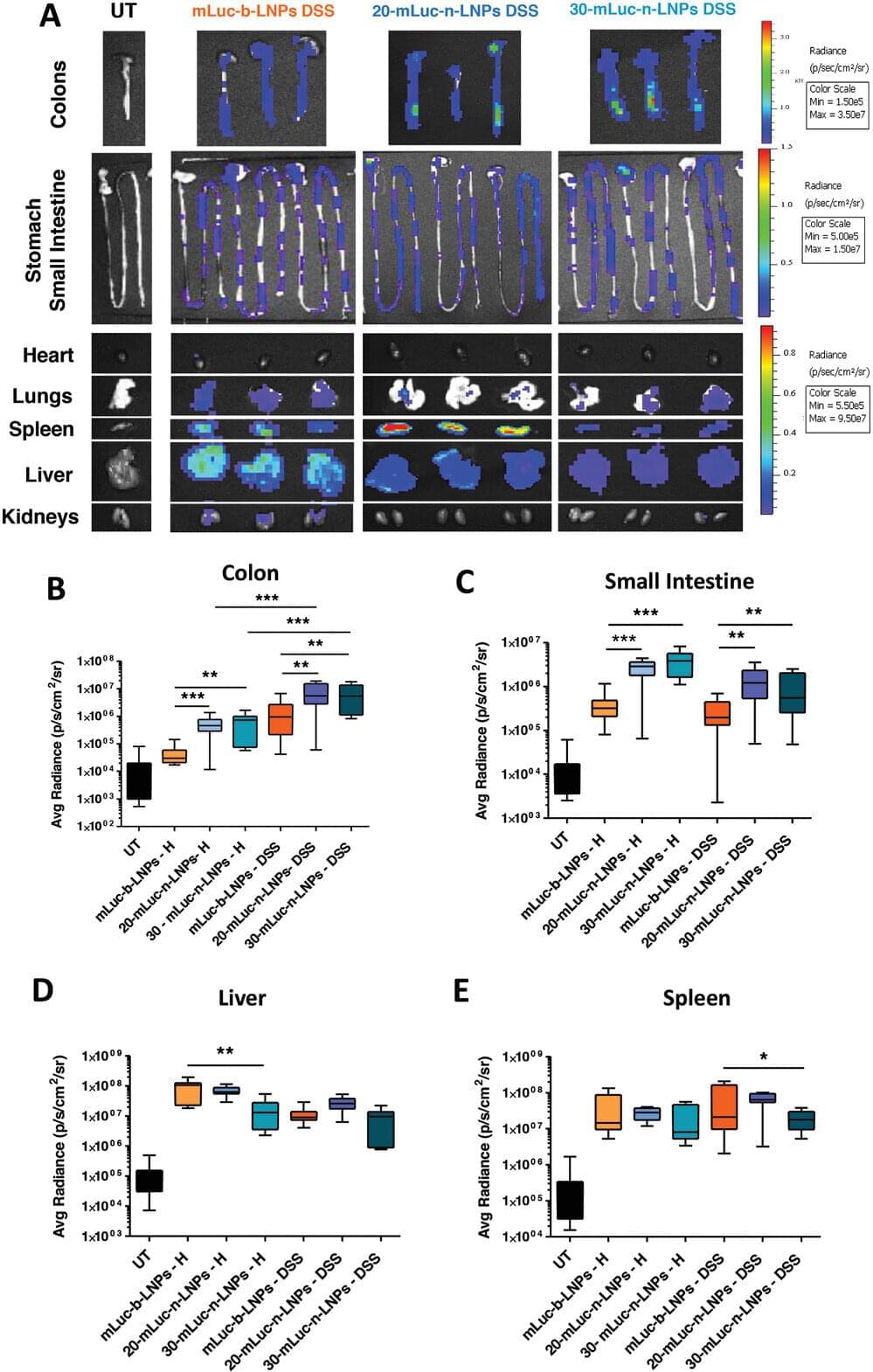Researchers at Tel Aviv University have achieved a breakthrough in drug delivery: they have successfully transported lipid nanoparticles encapsulating messenger RNA (mRNA) to the immune system of the small and large intestines—bypassing the liver upon systemic administration. By simply altering the composition of the nanoparticles, the researchers demonstrated that mRNA-based drugs can be directed straight to target cells, avoiding the liver.
The Tel Aviv University study was led by post-doctoral fellow Dr. Riccardo Rampado together with Vice President for R&D Prof. Dan Peer, a pioneer in the development of mRNA therapeutics and Director of the Laboratory of Precision Nano-Medicine at the Shmunis School of Biomedical and Cancer Research. The study was published on the cover of the journal Advanced Science.
“Everything injected into the bloodstream eventually ends up in the liver—that’s just how our anatomy works,” explains Prof. Peer. “This poses two challenges. First, drugs intended to target specific cells in particular organs may be toxic to the liver. Second, we don’t want drugs to get ‘stuck’ in the liver.
